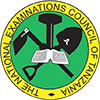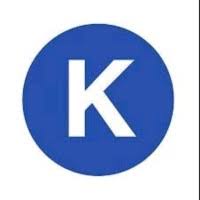
THE UNITED REPUBLIC OF TANZANIA
NATIONAL EXAMINATIONS COUNCIL (NECTA)
TIMETABLE FOR CERTIFICATE OF SECONDARY EDUCATION EXAMINATION NOVEMBER, 2019
The National Examinations Council of Tanzania (NECTA) is Government Institution which was established by the Parliamentary Act No. 21 of 1973. NECTA is responsible for the administration of all National Examinations in Tanzania.
Read Also:
The decision to establish NECTA was a follow-up of an earlier move, in April 1971, when Tanzania Mainland pulled out of the East African Examinations Council (EAEC) to conduct her own examinations. Zanzibar pulled out of EAEC in 1970. Before the pull out, between 1968 and 1971, Tanzania sat for foreign Secondary School Examinations conducted jointly by the East African Syndicate, which before then were conducted by the Cambridge Local Examinations Syndicate alone. The Examinations conducted by the Cambridge Local Examinations Syndicate then were the School Certificate and the Higher School Certificate Examinations. The School Certificate Examinations was taken by the African Students for the first time in 1947 and that of the Higher School Certificate in 1960.
IMPORTANT:
1. Attention is called to ‘Notice to Candidates’ overleaf.
2. Where contradictions arise; the day, time and duration shown on the question paper should be adhered to.
3. Examination will continue as scheduled even if it falls on a Public Holiday
Read Also:
NOTICE TO CANDIDATES
1. You are required to appear for the examination(s) at the centre(s) under which you are registered unless otherwise advised by the Council in writing.
2. You are required to observe all instructions given to you by the Supervisor, Invigilators or Officers of the Council responsible for the conduct of the examinations.
3. If you arrive more than half an hour late for an examination, you will not be admitted.
4. After the first half-hour, you may leave as soon as you have finished your paper and handed in the script to the Supervisor/Invigilator. You may leave the room temporarily at any time after the first half-hour but only with the permission of the invigilator.
5. You may bring into the examination room only books, papers or instruments which are specifically permitted. If you are suspected of cheating or attempting to cheat, or assisting someone else to cheat, the facts will be reported to the Council. You may in consequence be disqualified from the examination and excluded from all future examinations of the Council. Any notes or other unauthorised material may be retained by the Council at its discretion.
6. Communication, verbal or otherwise, between candidates is not allowed during the examination. If any candidate wishes to communicate with the invigilator he should raise his hand to attract attention.
7. Write your examination number correctly on every answer sheet of the answer booklet/answer sheet used. Using anybody else’s examination number is considered a case of dishonesty that may lead to cancellation of examination results. Names, initials or any other mark that would identify a candidate should not be written on answer books or sheets of paper.
8. If you are found guilty of dishonesty in connection with the examination you may be disqualified in the entire examination.
9. Take nothing other than the question paper, unless instructed otherwise, from the examination room. Do not damage any paper or material supplied.
10. Write all answers in the language required unless you are instructed otherwise.
11. Write in blue or black ink or ball pen. Draw in pencil.
12. You are required to attend punctually at the time shown on your timetable.
13. Smoking is not permitted in the examination room.
14. Private candidates should produce a letter of authority from the Council allowing them to sit for the particular examination at the prescribed centre, failure to that no permission will be given to enter the examination room.
15. The examination will continue as scheduled even if it falls on a public holiday
CLICK LINK BELOW TO DOWNLOAD






